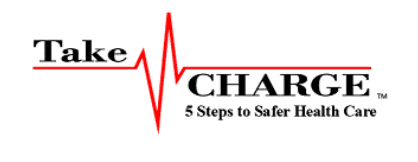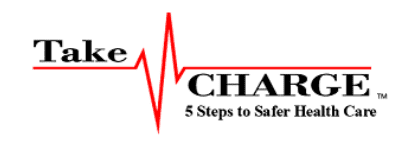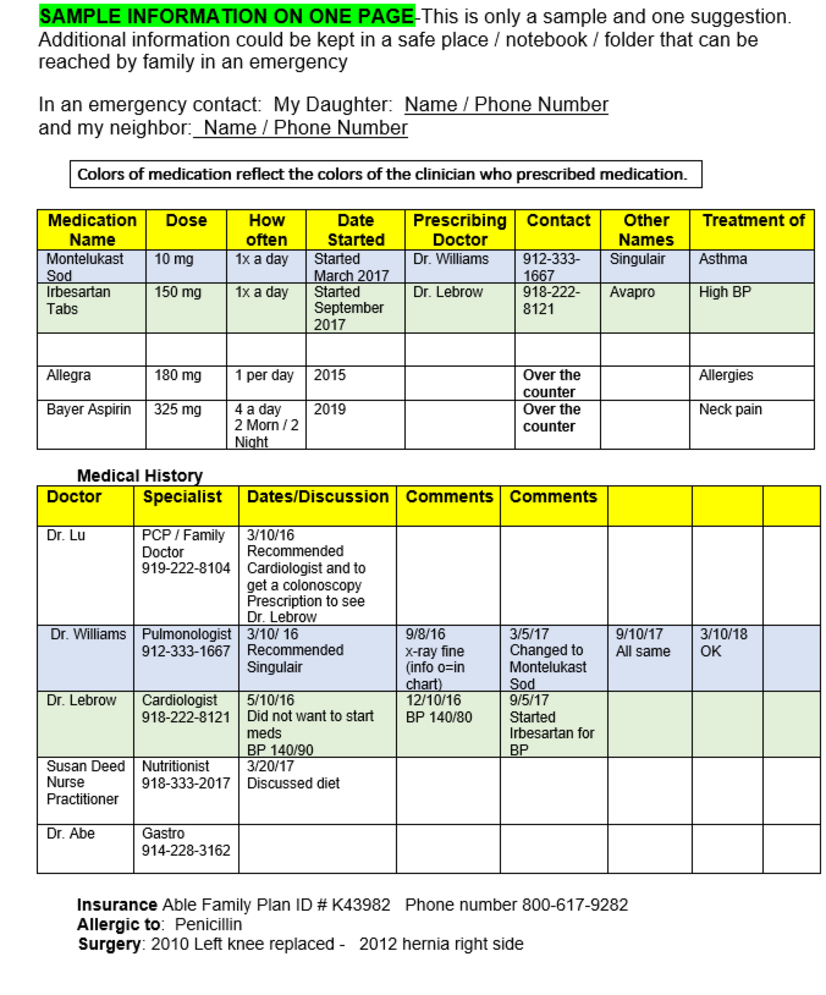Step 2 Keep Track of Your Medical History and Current Medications
KEEP TRACK OF YOUR MEDICAL HISTORY AND MEDICATIONS
Medical History
Has a doctor ever asked you, “When was your last colonoscopy?” or “When did your symptoms start?” or any other question about your past health that you can’t answer because you didn’t write it down?
Why keep a medical history? Just as a resumé helps an employer understand your suitability for a job, a personal medical history helps a clinician understand the whole picture of you as a patient. That’s especially true when you’re seeing a healthcare provider for the first time, or when you see multiple providers.
Not only does this history help the healthcare providers, it gives you a truer picture of your own long-term health.
Medications List
Most medical practices will ask for a copy of this list when you sign on as a new patient. Bring the list to every medical appointment to be sure your records are correct and up to date.
It’s a good idea to keep an up-to-date list handy (maybe on the refrigerator door) for emergencies.
KEEP TRACK OF YOUR MEDICAL HISTORY AND MEDICATIONS
Helpful Links for Keeping Records

TakeCHARGE Ambassador Maria Rodriguez from Long Island, New York uses a list for her family that includes a photo of the medication! (Left is a sample)




